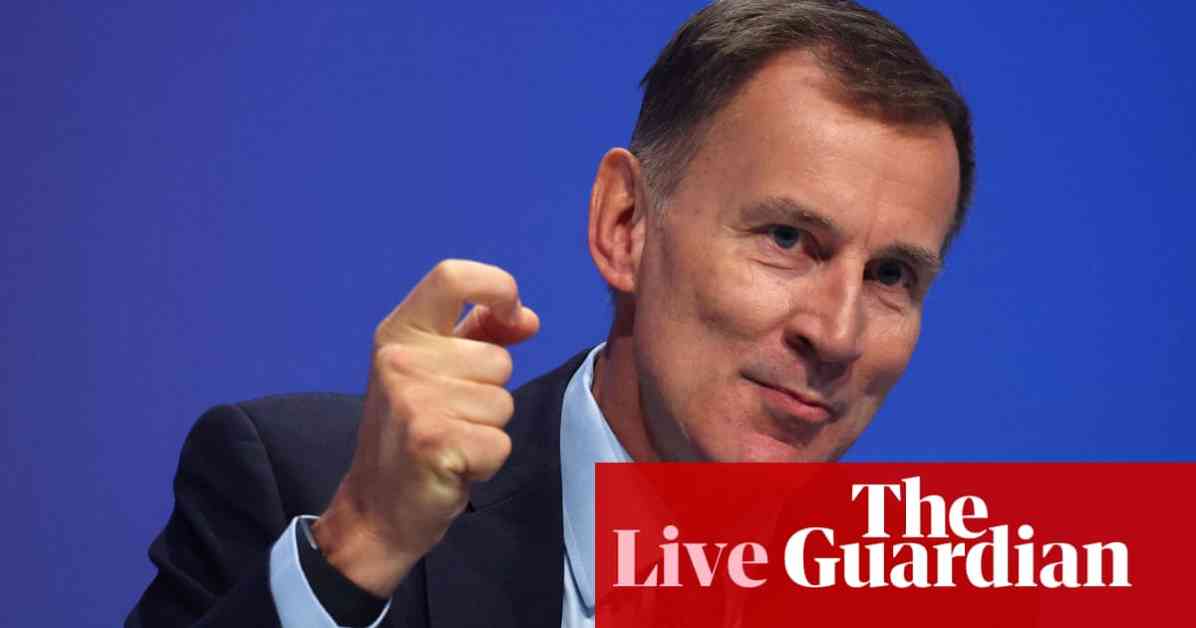Jeremy Hunt, the shadow chancellor, has strongly refuted Rachel Reeves’ claim that the Tories left the worst economic inheritance since the war, labeling it as “one of the biggest lies” told by Labour. Speaking at a conference hall, Hunt expressed his disbelief in Reeves’ assertion, stating that he would have been grateful to inherit the economic legacy she did when taking over. He further criticized the Treasury’s claim of a £22bn black hole in public finances, citing a recent Freedom of Information Act inquiry by the Financial Times that revealed the Treasury’s reluctance to justify this figure.
Economic Analysis and Critique
Hunt’s remarks were supported by an article in The Economist, which provided a more nuanced view of the economic situation. The article acknowledged that while the Tories had made decisions that impacted growth and public finances, Reeves had more flexibility than she had let on. It highlighted that the £22bn black hole may not be as dire as portrayed, with around half of it being attributed to unforeseeable circumstances such as cost overruns on the asylum system. The other half, related to pay increases for public-sector workers, was anticipated and could be managed without significantly affecting Britain’s fiscal position.
The article also pointed out that Hunt, as Reeves’ predecessor, left behind £8.9bn in fiscal headroom, which allowed for borrowing within fiscal rules. With favorable economic conditions and updated forecasts, this headroom was projected to increase to £22bn. Additionally, excluding the Bank of England’s losses from quantitative easing in public debt calculations could further boost this headroom to £39bn. This analysis challenged the narrative of a dire economic inheritance and highlighted the potential for a more positive fiscal outlook.
Political Discourse and Future Projections
In response to questions about Labour’s predictions of a worsening economy, Hunt cautioned against catastrophic mistakes in budget decisions that could hinder growth. He emphasized the importance of avoiding tax hikes that could stifle economic recovery. Hunt reiterated his stance that Labour’s claims of the worst economic inheritance were unsubstantiated, pointing to credible sources like The Economist to support his argument.
On the political front, Hunt underscored the need for the Tories to appeal to younger voters and regain their trust. He predicted that welfare reform, including contentious cuts like winter fuel payments, would become a critical issue for Labour due to potential backlash. Acknowledging the importance of engaging with diverse demographics, Hunt emphasized the need for the Conservative party to address pressing issues and offer a compelling vision for the future.
Conclusion
Jeremy Hunt’s critique of Rachel Reeves’ assertions regarding the Tories’ economic legacy sheds light on the complex nuances of fiscal policy and political rhetoric. By challenging the narrative of a dire economic inheritance, Hunt has opened up a dialogue on the true state of the economy and the potential for a more optimistic fiscal outlook. As the political landscape evolves, it remains crucial for policymakers to engage with diverse perspectives and prioritize policies that resonate with the public. The ongoing discourse between parties like Labour and the Tories will shape the future trajectory of the UK economy and governance.












